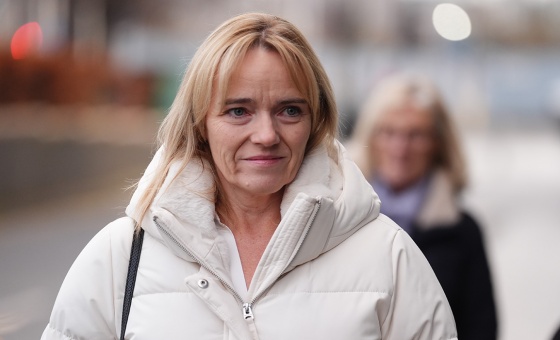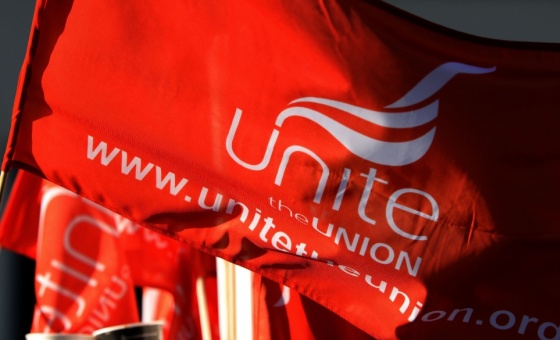This is the last article you can read this month
You can read more article this month
You can read more articles this month
Sorry your limit is up for this month
Reset on:
Please help support the Morning Star by subscribing here
WOMEN’S refuges are difficult places to live — they are usually communal, busy and noisy places which no woman or child would move into by choice.
In women’s refuges support and accommodation often exist under the same roof. Accepting a refuge place means accepting this support in whatever form it might take.
The quality of this support is not a priority for a woman fleeing abuse, safety is. Unlike many other kinds of support service, there is no door to close at the end of the day and not a lot of space to have routines and rhythms of your own, it’s not home.
Support at refuges is delivered by workers who are guided by organisational policies and procedures, social work-led Child in Need Plans and decisions made by multi-agency risk assessment conferences.
A woman who finds herself in this system can be quickly immersed in a whole new language and words like “engaging,” “service user,” “case” and “assessment” will punctuate daily life. This is the language of authority and power.
Anyone would find this overwhelming, but for a woman moving from a place where she has been coerced, curtailed and controlled to an institution, this could translate into a frightening experience.
“Jane” found her refuge experience confusing from the beginning. Support meetings were unclear and she felt intimidated.
Jane challenged practice after a culmination of events which included being watched by staff and having notes taken while she was giving her child breakfast, a poor response to raising safeguarding concerns about another resident’s child and being refused an advocate at support meetings. Her placement broke down and she was evicted with 24 hours’ notice.
Jane, her two-year-old son and a bag of wet washing were given a taxi ride back to the town she had fled from and they became homeless, sleeping on friends’ floors while making new applications for housing.
Being observed giving your child breakfast and having notes taken without consent, being refused an advocate and not being able to effectively challenge the services you are receiving are all examples of “oppressive practice.”
Oppressive practice can be subtle and insidious and is what happens when services delivering support to vulnerable people exercise their power inappropriately. It can leave people feeling, powerless, distressed and bullied.
“Kate,” who spent six months at a refuge, said that her support worker would call her for meetings with no notice, approach her to discuss things while she was busy with her children and, on one occasion, came into their room and told her: “You are not processing your grief properly,” leaving her confused and questioning herself for days.
Kate describes her time in a refuge as a horrible experience which, although it helped her take her life forward, left her with another layer of trauma to come to terms with.
The unboundaried behaviour she describes is also a form of oppressive practice and the result of a worker’s inability to respect the autonomy of a service user.
Oppressive practice happens when workers forget that the people that they serve are their partners in the work they do with them, not people and problems to be managed.
It can become endemic in organisations which are bogged down with bureauracy, where morale is low and agendas are focused on external pressures like funding.
Women’s services exist in a dichotomy of secrecy and celebration for their great works, all the while being heavily cut and outsourced.
Tenders, instead of being won by the most experienced and committed providers, are increasingly won by the cheapest and most seemingly efficient.
Efficient services are largely process rather than people-driven and cheap services can be offered by high-volume profit-making companies or short-term, under-regulated community interest companies. All these factors can create an atmosphere where the real focus is lost. The real focus being the individual lives, needs and experiences of women and children who have fled abuse.
Progressing complaints is difficult for women in these situations because they are too busy with the emotional and practical realities of rebuilding lives. The structural positioning of any organisation lends itself a level of power that a lone woman in crisis will never be afforded.
Jane says: “If you are vulnerable and tense anyway and a bit all over the place due to domestic violence, if they [the staff] mistreat you, where do you go and who will believe you?”
Most women like Jane will throw their hands in the air and move on because the pressing matters of housing, children and coming to terms with abuse are greater. This is where women are being failed.
In light of the increase in risk to women when they leave abusive men; the need for practical, accessible support and the limited availability of safe short-term housing, then it is necessary to have provision which provides for these basic needs. Refuges, at the very least, offer this.
There are many women for whom the experience of refuge is positive, supportive and helpful. The practice of staff in refuges is a symbiosis of nuanced factors that step beyond what basic procedure and policy can manage.
It is about relationships between individual people, how a physical space feels, the expectations and experience of the women who work and live there and and, from an organisation’s view, how much time they set aside to making sure that they are maintaining as positive as possible experiences for women, despite the enormous challenges that they face.
While oppressive practice can become endemic in organisations, so can good practice become the standard. Mechanisms to introduce anti-oppressive practice are simple but only work when an organisation is willing to honestly examine itself, see its flaws and listen to the individual voices of its users. It is a process, but a vital one if women are going to move on less traumatised and with a clear sense of what the purpose of the refuge is.
- Emily Abbott studied social welfare at University of Nottingham and spent 15 years working with people who use services, for charities and local authorities.








